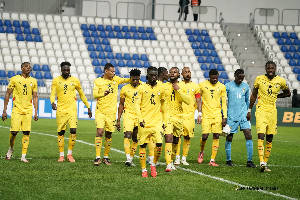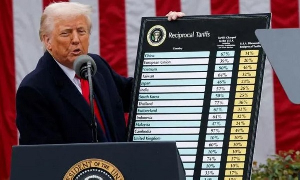Accra, Dec. 14, GNA - Mr Alex Owusu-Biney, lead person for the implementation of Programme for Bio-safety Systems (PBS) in Ghana, on Wednesday called for the development of critical capacity to implement a mechanism to handle requests for permits for laboratory work and field releases of Genetically Modified Organisms (GMOs). He said it would also require a mechanism for monitoring and inspecting GMOs and a system to provide information to stakeholders about the framework.
Speaking in an interview with the Ghana News Agency in Accra, Mr Owusu-Biney said Ghana was ready to implement the bio-safety framework and a comprehensive programme had been developed to build capacity in the development of the legal framework for bio-safety and its implementation. He said Ghana's Bio-safety Framework, which included bio-safety guidelines; regulations and a law would be put before Parliament early next year. According to him, the Ministry of Environment and Science had been the focal point for promoting safe use of biotechnology and a National Bio-safety Framework had been developed to promote government policy on bio-safety and ensure a regulatory system to address safety in the field of modern biotechnology. This, he said, would include national obligations in the area of trans-boundary movement under the requirements of the Cartagena Protocol on Bio-safety, which Ghana had already ratified in May 2003.
Mr Owusu-Biney noted that as part of a comprehensive programme to build capacity in the development of the legal framework and its implementation in the country, PBS had taken regulators, committee members of the National Bio-safety Committee, researchers and scientists through training on the evaluation of confined field trial applications. He explained that the training was to enhance their knowledge on the characteristics, regulations and executions of confined field trials and also provide practical exercise in the process of application, planning and implementation of confined field trial. It was also to provide practical exercise in the process of review, decision-making and documentation for the confined field trial. "Purposefully, the training was structured to facilitate regulatory compliance in the evaluation of applications by regulatory agencies for the conduct of confined field trials before their consideration for unrestricted release under commercialisation."
Mr Owusu-Biney, who is also the Coordinator of the National Bio-safety Committee, said two case studies on Bt Cassava and Bt Maize were analysed by the regulators for possible consideration and they were also taken through competitive grant facility for environmental risk assessment research as well as Biotechnology and Biodiversity Interface (BBI). "It is hoped that this will promote good practices in the use of modern biotechnology for innovative applications in a bid to move the country's economy forward," he said.
General News of Wednesday, 14 December 2005
Source: GNA












